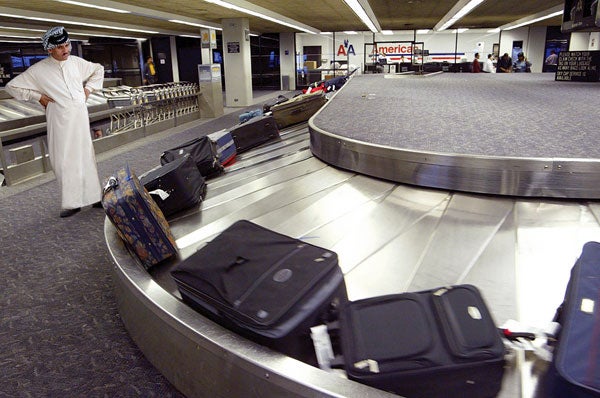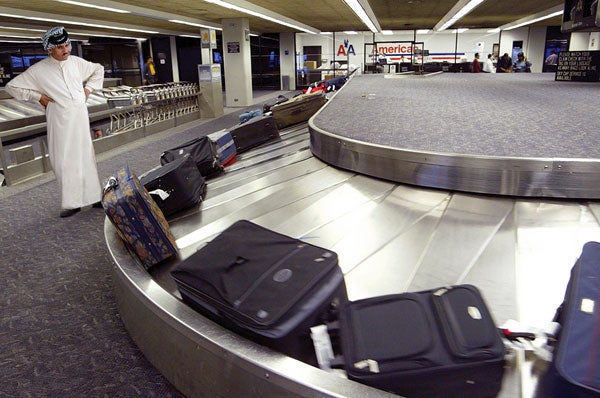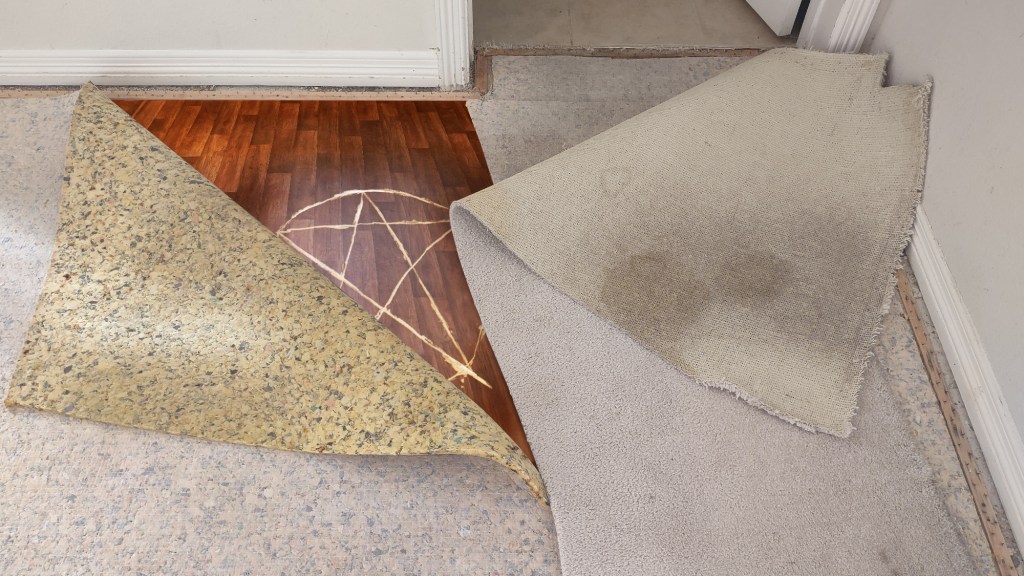NEW YORK—Even in the air-conditioned confines of New York’s John F. Kennedy Airport back on June 14, Abu Basir Yousef was sweating.

His sole piece of luggage—a black duffel bag—was lost upon his arrival in New York.
Despite hours of waiting, and several U.S. Airways check-in counter workers and Transportation Security Administration screeners joining in the search, the Yemen-born 32-year-old had yet to hear any positive updates. Finally, a baggage claim representative approached him.
“Afraid I’ve got some bad news,” the worker said to Yousef.
Airline personnel had searched the plane, the tarmac, and the gate, but were still unable to locate his bag containing his homemade dirty bomb.
“My trip was ruined,” Yousef said. “But Allah will right this wrong.”
Most Americans have grown accustomed to inconvenience in the name of security, be it color-coded anxieties or metal detectors at public libraries. But al-Qaeda member Yousef lived a nightmare scenario that would cause even the most frequent of flyers to shudder.
After a cramped, twice-delayed U.S. Airways flight that he said would be “the last of my life,” Yousef sat and stared for hours at an empty, rotating baggage carousel at JFK, searching in vain for his expensive and fragile cargo, unaware that it was currently being routed and re-routed around the country.
Over the next three days, it would arrive at virtually every major domestic destination—except for its intended one, New York—and eventually wind up among the Father’s Day gifts and matching bags in Lambert-St. Louis International Airport.
According to U.S. Airways, the luggage lingered in St. Louis after an unscheduled side trip to Dallas, a short stint in Charlotte, NC and even a surprise UPS delivery to a suburban home in Michigan.
When informed that somebody had mistakenly taken his luggage home, opened it, and called the airline, who returned it—two days later—to Detroit’s Metro Airport, Yousef could only shake his head.
“The U.S. truly is the Great Satan,” he said.
His case is but one among thousands. In a busy summer season with multiple new security regulations, baggage blunders like this leave travelers like Yousef with no choice but to shrug and laugh at their all-too-common horror stories.
But the sheer number of unintentional side-trips taken by this particular radioactive weapon forced U.S. Airways’ Vice President For Consumer Affairs Bryce Fox to admit that “baggage mishandling history” may have been made.
“We sincerely apologize to Mr. Yousef for sending his explosive device to St. Louis—eventually,” Fox said, chuckling. “Had we paid a little more attention, we would have definitely known St. Louis was not this bomb’s final destination. At least we can say that it was not damaged, or really even touched, by TSA staff.”
By the 22nd, over a week since Yousef discovered his bomb was missing, the duffel bag finally reached JFK. Yet even an attempt to contact him at his Bronx home about its arrival proved a comedy of errors. A mispronunciation of Yousef’s name in the baggage claim office resulted in the bag being returned to another traveler in the airport that day—air marshal Abe Joseph.
“I took one look inside and realized that somebody was probably pretty upset to be missing such a complicated piece of equipment,” Joseph said. “I brought it to security, and they held me up for more than an hour with the thing, and when they finally passed it through, what did they do? They dropped it. Twice.”
Added Joseph: “Welcome to New York.”
It’s hard to believe that one innocent-looking, dirty-bomb-holding black duffel bag could wreak so much havoc, an irony not lost on Yousef. “These infidels must die,” he said.
U.S. Airways spokeswoman Deborah Shier once again apologized to Yousef and said that the airline had returned his bag via private courier back to his Bronx apartment on Thursday. “We sincerely appreciate his business, and hope he will consider U.S. Airways for future flights,” Shier said. “I can assure him those flights will most likely go a lot smoother.”
Yousef may have his luggage back safe, but nevertheless refuses to do business again with U.S. Airways, saying that he has “another important mission” to attend to on the West Coast—one where his bomb will, no doubt, be better treated.







